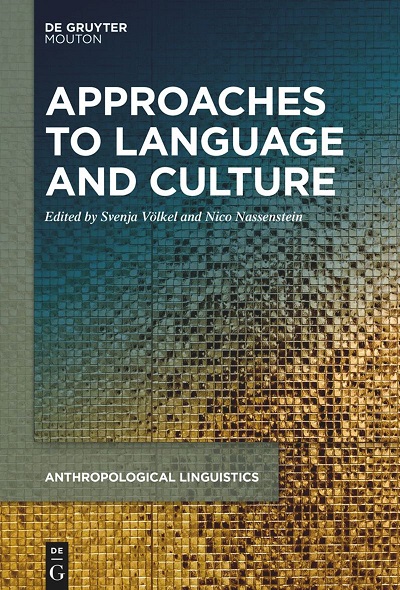Research on language and culture in Africa
 This book chapter by Azeb Amha and Felix Ameka surveys research into the relations among language, culture, and cognition in Africa. A leitmotif is linguistic relativity; the hypothesis that our habitual linguistic practices influence the way we categorise and express the perceptual flow of daily experiences. The chapter is organised around how cultural meanings are encoded and are inferable from forms at all levels of language: syntactic, semantic and pragmatic. These are manifested in various domains including categorisation, the cultural bases of nominal classification, the sensorium, linguistic and cultural evidence for the importance of seeing (colors and patterns), and of balance. Manifestations of oblique communication and its impact on grammar, in particular, the link between triadic communication and the use of logophoric and interpretive markers are part of our prime examples of the language-culture symbiosis. Trends in research into the cultural and conceptual bases of social interaction in African communities, in particular ideologies of greetings and partings and the related practices of naming and addressing, are discussed. An urgent direction in this research is multilingual socialisation. We highlight the empirical knowledge African languages have contributed as well as the challenges they pose to existing models and frameworks in the study of the language-culture interface.
This book chapter by Azeb Amha and Felix Ameka surveys research into the relations among language, culture, and cognition in Africa. A leitmotif is linguistic relativity; the hypothesis that our habitual linguistic practices influence the way we categorise and express the perceptual flow of daily experiences. The chapter is organised around how cultural meanings are encoded and are inferable from forms at all levels of language: syntactic, semantic and pragmatic. These are manifested in various domains including categorisation, the cultural bases of nominal classification, the sensorium, linguistic and cultural evidence for the importance of seeing (colors and patterns), and of balance. Manifestations of oblique communication and its impact on grammar, in particular, the link between triadic communication and the use of logophoric and interpretive markers are part of our prime examples of the language-culture symbiosis. Trends in research into the cultural and conceptual bases of social interaction in African communities, in particular ideologies of greetings and partings and the related practices of naming and addressing, are discussed. An urgent direction in this research is multilingual socialisation. We highlight the empirical knowledge African languages have contributed as well as the challenges they pose to existing models and frameworks in the study of the language-culture interface.
This book chapter appeared in Approaches to Language and Culture, edited by Svenja Völkel and Nico Nassenstein, Berlin, Boston: De Gruyter Mouton, 2022, pp. 339-384. https://doi.org/10.1515/9783110726626-013
Author(s) / editor(s)
About the author(s) / editor(s)
ASCL researcher Azeb Amha is a linguist with interest in the morphology and syntax of Afroasiatic languages, linguistic typology and in the interdisciplinary fields of anthropological linguistics and sociolinguistics.
Felix Ameka is Professor by Special Appointment of Ethnolinguistic Vitality and Diversity in the World at the Leiden University Centre for Linguistics.

